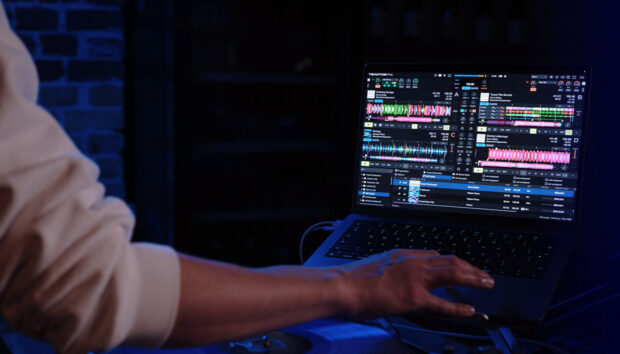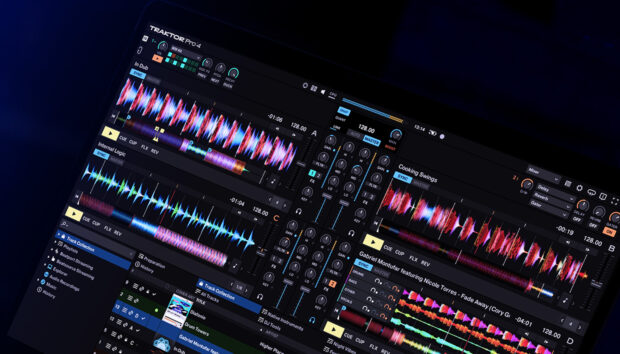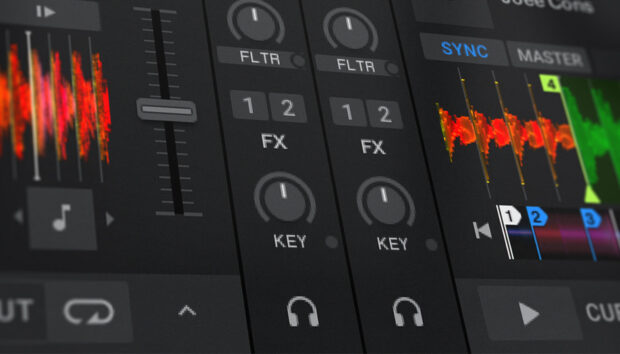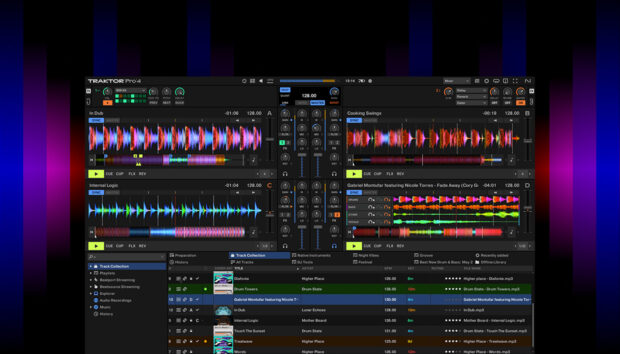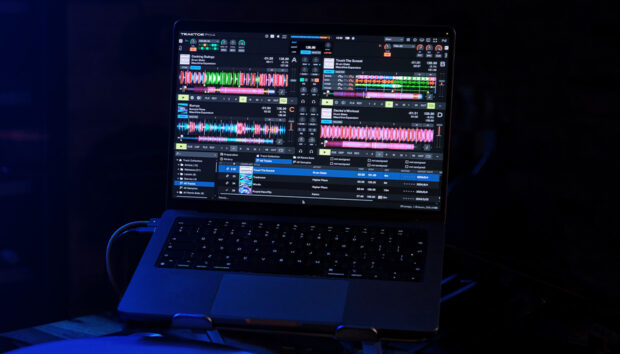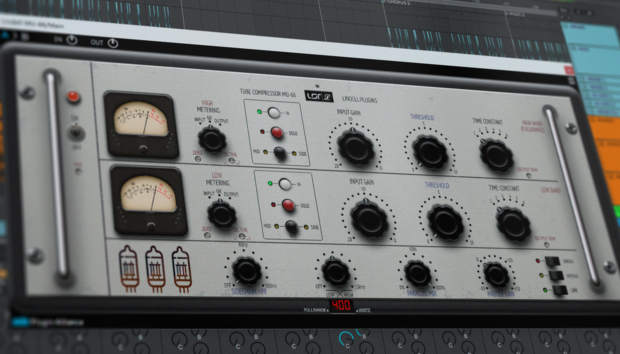
Welcome to the shadowy (yet intriguing) world of ghost producing, where the real magicians of the music industry operate behind the scenes. Far from the glitz and glamor of the spotlight, these producers are the hidden architects of some of the most iconic tracks we know and love.
In this piece, we’ll dive deep into this lesser-known aspect of the music production industry. We’ll uncover the basics of what ghost producing entails and learn why artists choose to use ghost producers in the first place. Then, we’ll cover some steps you can take if you want to become a ghost producer! Ready to get spooky?
Jump to these sections:
- What is a ghost producer?
- Why do artists use ghost producers?
- How common is ghostwriting?
- How do you become a ghost producer?
- Ghost produce to expand your skill set
Looking for more production tools? Download Komplete Start for free to access professional instruments, sounds, samples, and more.
What is a ghost producer?
Ghost producing is one of the music industry’s not-so-hidden secrets. But what exactly is a ghost producer, what do they do, and why are they such an integral (yet invisible) part of the industry?
A ghost producer is essentially a music producer who creates tracks for other artists. These artists then release the music under their own name. Think of ghost producers as talented composers and sound engineers who prefer to stay out of the limelight, allowing others to shine in the spotlight with the music they’ve created.
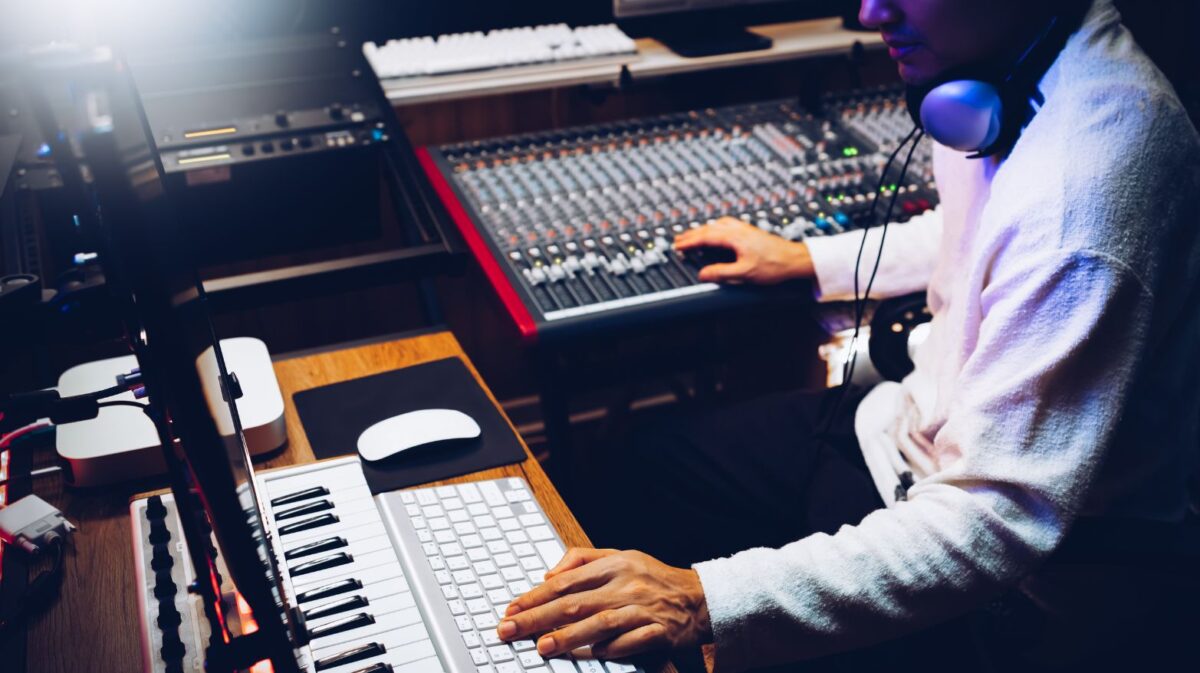
Being a ghost producer requires more than just technical know-how. It demands a deep understanding of current music trends, exceptional creativity, and the ability to adapt to different styles and genres. Ghost producers need to align with the artist’s vision and style, often tailoring their creations to fit a specific sound or brand.
While ghost producing is particularly prevalent in electronic music, it’s not confined to this genre. Ghost producers work across a spectrum of styles, from pop to hip hop, and even rock. Each genre presents unique challenges and opportunities, requiring ghost producers to be versatile and adaptable. But, unlike traditional music producers, ghost producers don’t receive public credit for their work. Their role is shrouded in confidentiality, often bound by legal agreements. This anonymity allows the artists to maintain the facade of being the sole creators of their music, while ghost producers enjoy the freedom to create without the constraints of fame.
Check out this video by Dame Taylor to learn more about his experience with ghost producing in the music industry.
Why do artists use ghost producers?
Artists hire ghost producers for a variety of reasons. For many, it’s a practical decision driven by the lack of technical skills or the time needed to produce music to a professional standard. This collaboration can even be seen as vital in the fast-paced, high-pressure music industry, where maintaining a constant flow of quality content is the key to staying relevant. Ghost producers can help sustain an artist’s career momentum by continuously innovating and producing high-quality music.
In the video below, Jonas Aden hired several ghost producers on Fiverr to try to emulate his sound – then filmed his reactions to each.
How common is ghostwriting?
Ghost producing is more common than you might think, especially in the world of EDM, pop, and hip hop. In these genres, where the pressure to constantly release fresh, new music is intense, ghost producers are the secret to many artists’ success.
That being said, not all ghost producers are created equal. Some producers only enter into a ghost writing arrangement once, whereas others make a full-time career out of it. For example, check out this video on how Benny Blanco became one of the most successful ghost producers of our era.
The ethics of ghost producing
The concept of ghost producing has sparked a lot of debate within the music community over recent years. Some view it as a necessary aspect of the industry, helping artists meet the demands of their career. Others see it as diminishing the authenticity of an artist’s work. Regardless of the debate, ghost producing remains an ongoing part of the music industry; so whether you like it or not, it’s a collaborative dynamic that’s here to stay!
This video by 7 Skies helps break down some of the ethical dilemma behind ghost producing (and has some really great points on the topic).
How do you become a ghost producer?
Where there’s no tried-and-true checklist for how to be a ghost producer, there are some necessary steps to consider if you want to try ghost producing tracks in the future.
1. Master your craft
The first step to becoming a ghost producer is to master the art of music production. This means understanding the technical aspects of production software, mixing, mastering, and composing. But, it also means you’ll need to be able to understand an artist’s vision and be able to deliver exactly what they’re looking for. For this reason, ghost producing requires versatility. An EDM ghost producer, for instance, must have a knack for creating infectious dance beats, while a pop ghost producer needs a broader palette to craft catchy melodies and hooks.
2. Build a portfolio
Building a dynamic and diverse portfolio is a crucial step in establishing yourself as a versatile ghost producer. Your portfolio, essentially your musical resume, should be a mosaic of your skills and styles, with each piece articulating your ability to seamlessly switch between genres. Whether it’s through the thump of electronic beats or the gentle strum of an acoustic guitar, your portfolio should resonate with a clear message: “I can do it all.” You can use your portfolio to demonstrate your technical prowess as well as show off your unique creative voice. This collection of work becomes your musical identity, setting you apart in the competitive world of ghost producing.
3. Network and market yourself
This part’s tricky because, well, you’re a ghost. But in today’s digital age, building an online presence is key. Use platforms like SoundCloud and Spotify to share your work. Engage in music production forums and start connecting with other artists, producers, and DJs. Start reaching out to those who you think could benefit from your skills and offer them your services. Take on as many collaborations as you can realistically muster and, as your portfolio gets bigger and more diverse, the word will naturally spread – and potential clients will be hitting you up within no time!
4. Pitch to clients
Securing clients as a ghost producer involves reaching out to up-and-coming artists or established ones looking for a fresh sound. Ensure your communication is professional and respectful of the confidential nature of your role; and focus on how your skills and style can enhance their music. Tailor your approach to each artist, showing that you understand and can contribute to their unique sound. Keep in mind that landing ghost producing gigs is a numbers game – the more you pitch, the higher chance you have of getting hired. So, get on that hustle!
If you want more tips on how to become a ghost producer, take a look at this video:
Ghost produce to expand your skill set
Ghost producing isn’t always just about making music without credit – it’s also about understanding the nuances of different genres and artists’ visions. Many producers decide to enter into the world of ghost writing because it allows them an opportunity to refine their studio skills while also learning how to best collaborate with a variety of other artists.
In the end, ghost producing is a fantastic way to expand your skill set, gain industry experience, and possibly hear your beat on the radio someday (and smirk secretly). Plus, it’s a viable way to make money with music.
Start ghost producing tracks
The world of ghost producing is a fascinating mix of mystery, creativity, and unseen collaboration. Even though ghost producers are invisible in the credits, they play a profound role in the music industry. So, next time you find yourself lost in the rhythm of a hit song, remember that it may have been crafted by a ghost.
If you’re just getting started on your music production journey, download Komplete Start (it’s completely free) to get access to a ton of great music making tools for you to use in your ghost productions.








